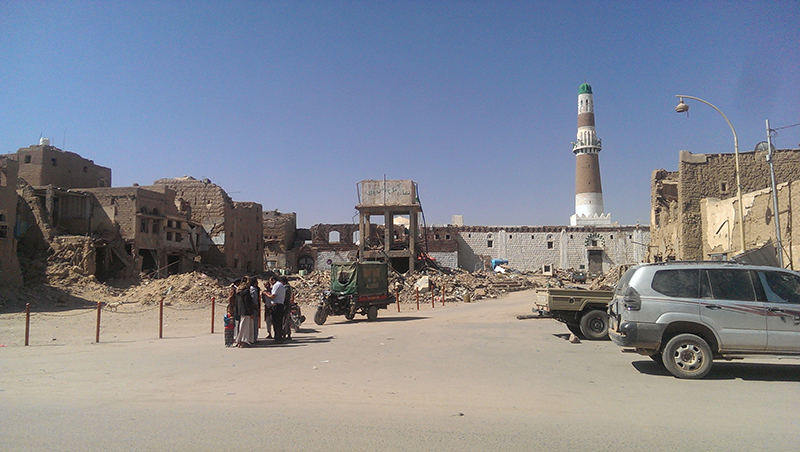January 19, 2016 – Blog Entry #1
by Giorgio Trombatore, International Medical Corps
Editor’s note: International Medical Corps Country Director for Yemen Giorgio Trombatore arrived in Sana’a last September. He is responsible for the organization’s staff of about 175, who provide humanitarian assistance from offices in Aden, Lahj and Taizz in addition to the capital, Sana’a. Prior to his assignment in Yemen, he served with International Medical Corps teams in Afghanistan, Mali and Democratic Republic of Congo.
During the Christmas lull, a small group of the International Medical Corps team in Sana’a considered what we might be able to offer a small gift for people in need in Sana’a. We decided on a gift of light. We would provide lighting for a section of the main prison in the capital, Sana’a, where more than a hundred prisoners with mental health issues lived in near-permanent darkness.
The first task was to gain approval to visit the prison, which houses about 1,900 inmates. A minority of them struggle with mental illness. During our initial visit to the prison on December 26th, we noticed that living areas for some vulnerable prisoners, such as those under-age, included lighting, more space and access to open air spaces. However, conditions for adult men with mental illness were far more challenging. They were over-crowded and lived in complete darkness.
Following some brief discussions, we decided that solar panel-powered lighting was the quickest, more economical way to make an immediate—and significant—improvement in the living conditions of those effected. We contacted a local electrical contractor, who dispatched crews the following day to begin work.
The contractor needed less than a week to install solar panels on the prison roof that captured enough energy to power lights he also installed along the corridors plus all 18 rooms and toilets used by the prisoners. On January 2nd, the new lighting system was inaugurated at a brief ceremony that included our group and prison authorities. It was heart-warming to see grateful inmates proudly showing off their rooms to visitors. International Medical Corps doctors, who also attended the ceremony went on to visit the prison’s health centers while a water/sanitation specialist consulted with prison authorities on plumbing work that could improve the facility’s water quality.
The work not only lifted the spirits of those prisoners struggling with mental illness. We believe it also generated goodwill and helped strengthen relations with the community. Because of this, we hope to continue our efforts to improve prison conditions. The next potential project: an upgrade for the exercise yards that could include planting trees, installing benches and hanging the works of local artists on prison walls.
